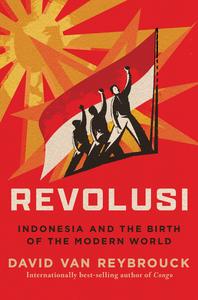Revolusi Indonesia and the Birth of the Modern World, US Edition

Free Download Revolusi: Indonesia and the Birth of the Modern World, US Edition by David Van Reybrouck
English | April 9th, 2024 | ISBN: 1324073691 | 656 pages | True EPUB | 26.31 MB
From the internationally best-selling writer, a masterful account of the epic revolution that sparked the decolonization of the modern world.
On a sunny Friday morning in August 1945, a handful of people raised a homemade cotton flag and, on behalf of 68 million compatriots, announced the birth of a new nation. With the fourth largest population in the world, inhabiting islands that span an eighth of the globe, Indonesia became the first country to rid itself of colonial rule after World War II.
In this vivid history, renowned scholar and celebrated author of Congo David Van Reybrouck captures a period of extraordinary tumult and chaos to tell the story of Indonesia’s momentous revolution, known as the "Revolusi." Encompassing several hundred years of history, he details the formation of the Dutch East Indies, the Japanese invasion that followed, and the young rebels who engaged in armed resistance once the occupation ended. British and Dutch troops were sent to restore order and keep peace, but instead ignited the first modern war of decolonization. America, too, became embroiled with the Indonesians’ fierce struggle for freedom. That struggle inspired independence movements in Asia, Africa, and the Arab world, especially in the wake of Indonesia’s monumental 1955 Bandung Conference, the first global conference without the West. The whole world had become involved in Revolusi, and the whole world was changed by it.
Drawing on hundreds of interviews and eyewitness testimonies, David Van Reybrouck turns this vast and complex story into an utterly gripping narrative, written with remarkable historical clarity and filled with tragedy and passion. A landmark history, Revolusi cements Indonesia’s struggle for independence as one of the defining dramas of the twentieth century and entirely reframes our understanding of post-colonialism.
